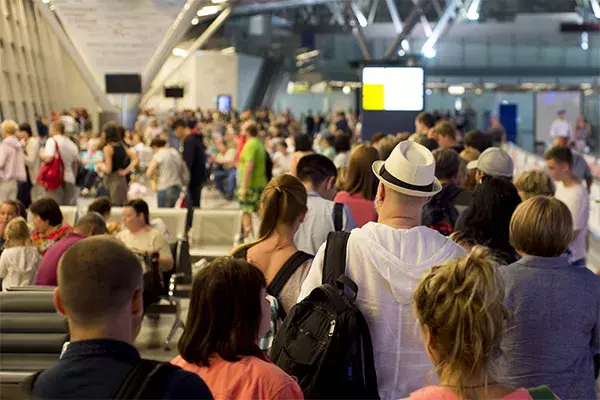29 April 2025 | Blog
Power cuts across Spain and Portugal show why airlines must lead with communication, not excuses
29 April 2025 | Blog
Power cuts across Spain and Portugal show why airlines must lead with communication, not excuses
Disruption is an inevitable part of the aviation industry, but while we can sometimes see things like bad weather and strikes coming, often acts of disruption come out of nowhere.
Yesterday, a major power outage affected large areas of Spain and Portugal, cutting power to homes, businesses, transport networks, and mobile communications. In Madrid, residents were urged to stay where they were, while TAP Air Portugal advised passengers not to travel to airports until further notice.
Across both countries, trains were halted, shops and restaurants closed, and public infrastructure ground to a standstill. The cause of the outage remains under investigation, and full restoration is still uncertain.
For travellers caught in the middle, the immediate concern is not why disruption happened, but how it is being handled. And for airlines, moments like these serve as a reminder that the quality of communication can have a bigger impact on the passenger experience than the disruption itself.
Passengers don’t judge the cause. They judge the response.
When disruption occurs, most passengers don’t differentiate between the different parts of the travel experience. They aren’t thinking about national grid failures or infrastructure breakdowns; they are thinking about whether their airline is keeping them informed and supported.
In those critical moments, what matters most is not necessarily the ability to fix the situation instantly, but the ability to provide passengers with clear, timely information, and to do so in a way that feels personal and genuine.
According to IATA’s 2023 Global Passenger Survey, passengers increasingly prioritise speed, convenience, and digital communication throughout their journey, and they expect airlines to keep them informed at every stage, especially during disruption.
Expectations around communication have risen sharply over the past few years. Passengers are no longer satisfied with generic updates or long periods of silence. They expect airlines to recognise their individual situations, to communicate frequently, and to show that they are doing everything possible to help, even when circumstances are beyond their control.
In disruption, communication is not a courtesy. It’s essential.
Research from McKinsey highlights that organisations prioritising clear and empathetic communication during crises are significantly better positioned to preserve customer trust and recover loyalty once operations stabilise. The quality of communication, not just the operational response, increasingly determines how passengers judge their experience.
Conversely, poor communication can quickly erode hard-earned reputation. Passengers who feel abandoned are more likely to share negative experiences publicly, further magnifying the impact of disruption on brand perception. At times like these, the best communication strategies do not overpromise or allow for uncertainty. They are honest about what is known, clear about what is not, and transparent about the steps being taken.
Passengers understand that not everything can be fixed immediately. What they value is being kept involved and reassured that they have not been forgotten.

Building communication into disruption strategies
At 15below, we help airlines ensure that communication is embedded into their disruption response plans, rather than treated as a final step once operational decisions have been made.
Automation allows airlines to reach tens of thousands of passengers at amazing speed, but scale alone is not enough. What matters is the ability to deliver messages that are accurate, relevant, and respectful of the individual passenger’s situation. By combining intelligent automation with a focus on empathy and control, we enable airlines to maintain passenger trust even when conditions are difficult and answers are limited.
According to SITA’s 2023 Air Transport IT Insights, airlines and airports are significantly increasing investment in digital systems designed to improve operational efficiency and passenger experience, including tools that better manage disruption communication.
The events across Spain and Portugal are a reminder that disruption will continue to take many forms, some more predictable than others. The airlines that succeed will be those that recognise that communication is not an optional extra, it is the foundation of resilience, reputation, and lasting passenger loyalty.
What airlines should focus on next?
For airlines impacted by yesterday’s disruption, and for those looking ahead to the inevitable challenges still to come, this is a reminder that the way disruption is managed has shifted. It’s no longer just about restoring operations as quickly as possible; it’s about how clearly, thoughtfully, and personally airlines communicate with their passengers when things don’t go to plan.
We would always encourage airlines to take a proactive approach to disruption, building the right systems into their operation long before a crisis hits. Solutions that give operational teams visibility, flexibility, and control without sacrificing the quality of communication are becoming essential, not optional.
At 15below, our IROPS Dashboard has been developed with this reality in mind. Built to help airlines manage irregular operations with greater speed and precision, the latest version of the solution gives teams the ability to see and prioritise impacted passengers through a clear, visual dashboard, filter and refine communications dynamically, and trigger re-accommodation options based on the latest available information - all in one place.
By automating the delivery of personalised updates and offering a real-time overview of who needs support and when, the IROPS Dashboard helps airlines move beyond reactive messaging and build a more consistent, supportive passenger experience, even when the situation around them is rapidly changing.
To find out how the enhanced IROPS Dashboard can strengthen your airline’s response to disruption, get in touch to arrange a demo. Whether caused by operational issues or wider infrastructure failures like yesterday’s events, disruption is becoming more unpredictable, so let our team guide you through new features of the dashboard and show you how it can help you improve communication, consolidate processes, and improve customer loyalty.




